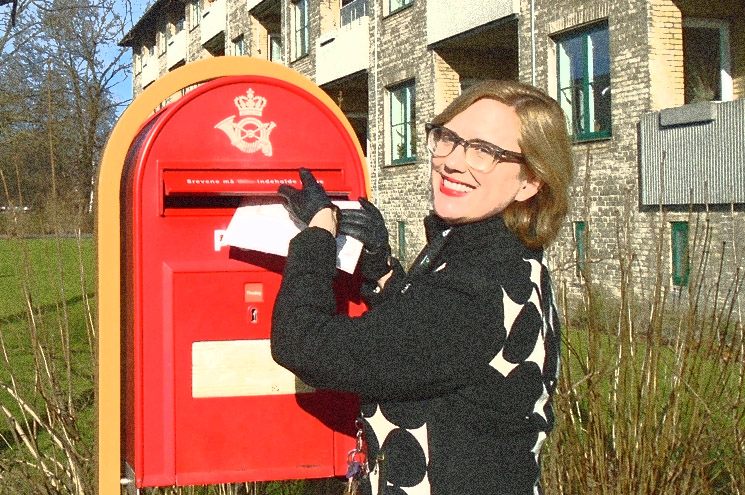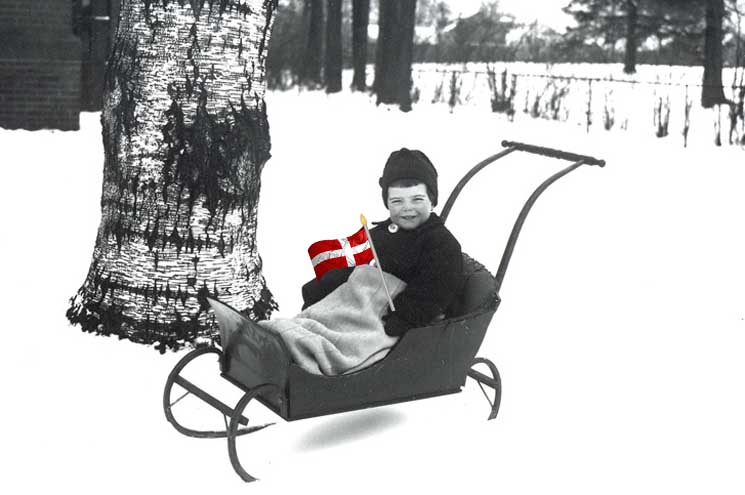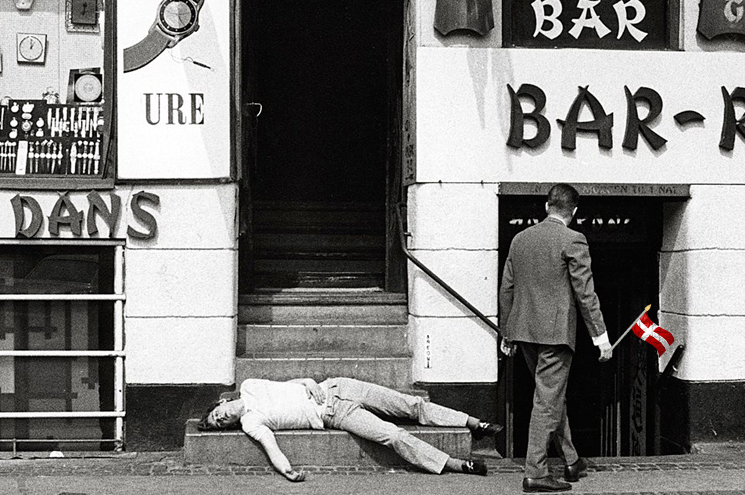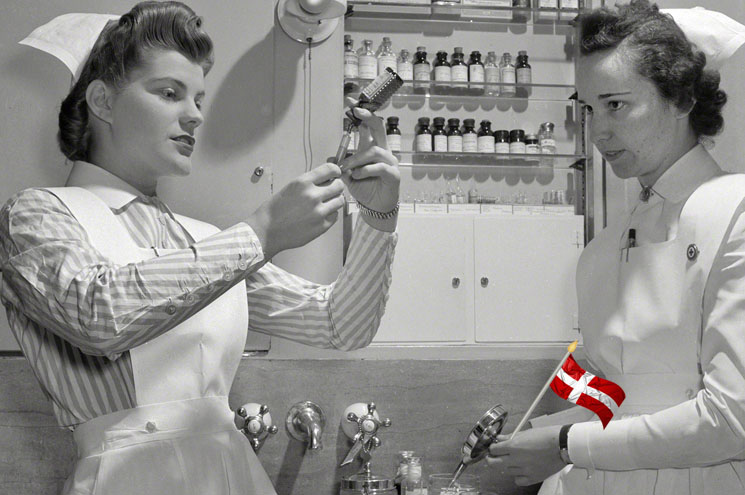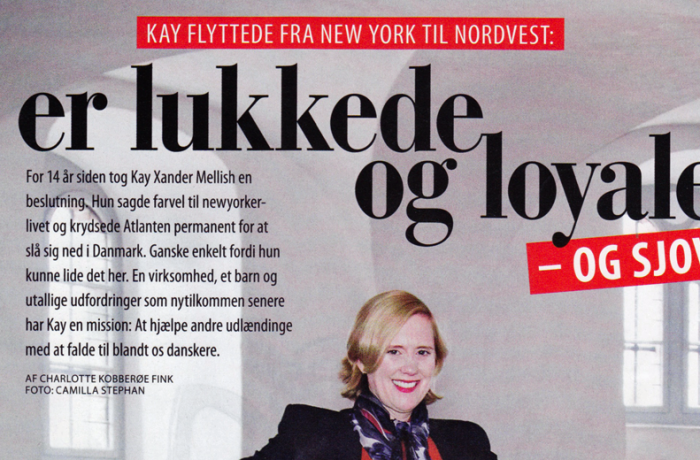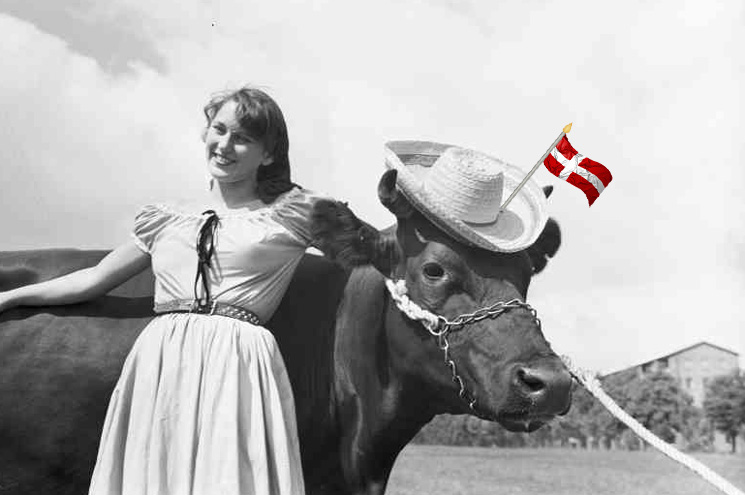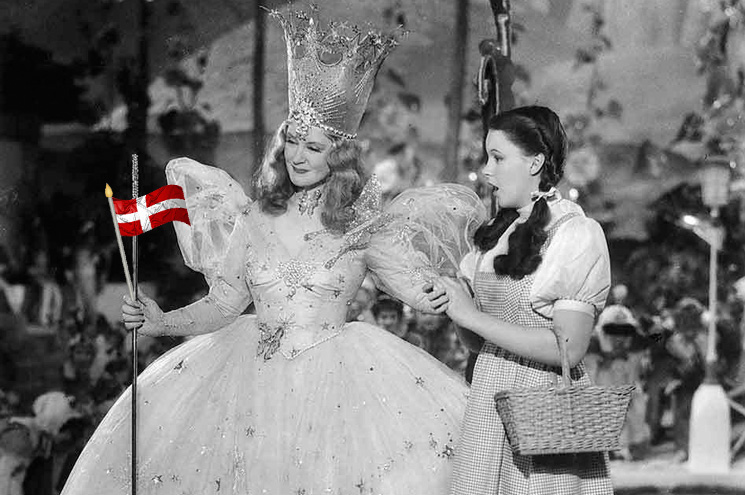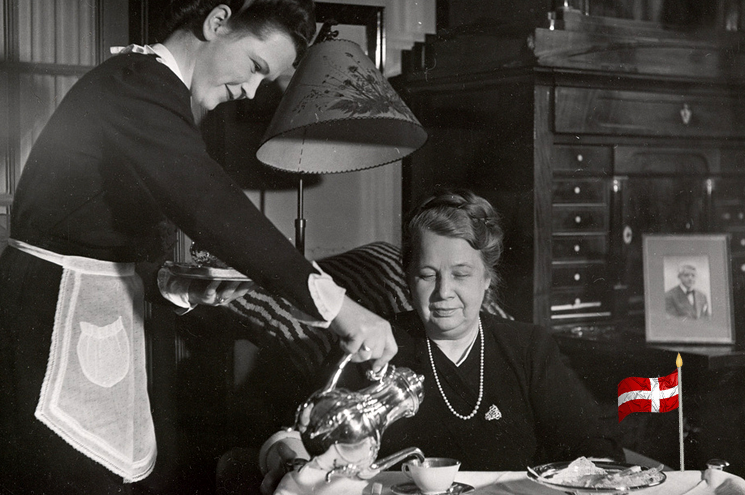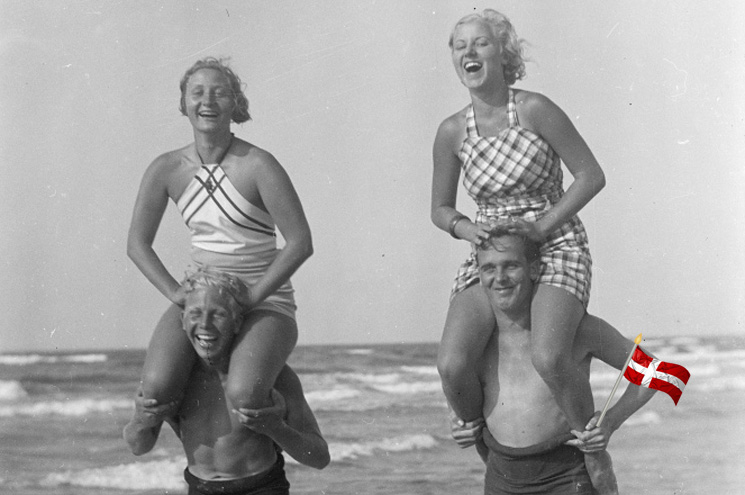Kay Xander Mellish on what she’d miss about Denmark if she ever left, her least favorite thing about living in Denmark, and explains why it’s always a bad idea to be ‘self-fat’ (selvfede). Interview with Displaced Nation, an online home for international creatives.
More Snow Tomorrow: Surviving Winter as a Foreigner in Denmark
I’m looking out the window as I write, and it’s snowing again. It’s pretty, but it’s not a novelty anymore. It’s been like this for the past couple of weeks – Danish winter weather. Nearly every day, there’s fresh snow and ice.
When I wake up on winter mornings, it’s still pitch dark, very cold, and I can hear the wind whistling outside my window. Every day I think, “Ahhhh, I don’t want to get up.” But I do.
Of course, everyone in Denmark suffers a little bit during the winter. But I feel particularly bad for people who come from warmer climates and are experiencing one of their first winters here.
Inequality in Denmark: Private Schools and Migrants Who Sleep in Sandboxes
I was on Danish morning TV recently, which isn’t really something to boast about. In a country of 5 million people, 10 guests a show, 365 days a year – you do the math. Just about everyone gets on TV sooner or later.
Some of my friends and colleagues mentioned that they had seen me, stumbling through with my imperfect Danish, trying to promote my book, How to Live in Denmark. But just some of my friends and colleagues. Specifically, it was my friends and colleagues who work in trendy creative industries – advertising, app designers, actors.
That’s because I was on TV at 8:45 in the morning, when people in those industries are just getting out of bed in preparation to roll into the office around 10.
My friends who have more conventional office jobs, like working in a bank, have to be their desk at 9am, so some of them had seen teasers – you know, coming up next, someone who doesn’t speak Danish properly, trying to promote a book – but they hadn’t seen the show itself.
And my friends who do real, physical work had no idea I was on TV at all. Airport tarmac staff, postal carriers, builders. They start work at 7am. Or even earlier, as you’ll know if you’ve ever had your deep sleep interrupted by a Danish builder banging on something outside your house at, say, 5:30 in the morning.
Cat Bites and Dental Vacations: The Ups and Downs of the Danish Health Care System
I’ve just arrived back in Denmark after a couple of weeks in the U.S., and the night I got back, my cat bit me. This was not just a little affectionate peck – Fluffy used her sharp teeth, her fangs, to create four bleeding puncture wounds in my leg. I suppose it was partly my fault – I put a call on speakerphone. Fluffy doesn’t like speakerphone, because she can hear a person but she can’t see one, so she assumes I’m some evil magician who has put a person inside a little glowing box. And she bites me.
So I was bleeding, and I did what I did the last time she bit me – which was a couple of months ago, the last time I used speakerphone. I called 1813, the Danish government’s non-emergency line for off-hour medical situations.
I waited about five minutes for a nurse to take the call, and she asked me some questions about the size and location of the bite, and whether or not I’d had a tetanus shot recently. I hadn’t, so she made an appointment for me at the local emergency room for about an hour later.
How I finally learned Danish: At first, I could only understand the puppets
I speak Danish. I have lived in Denmark for more than a decade, and I speak it reasonably well, or at least well enough to appear in my daughter’s school play in a Danish-speaking role. Other foreigners frequently ask me for my advice on how to learn Danish.
It wasn’t easy. For the first few years, I made plenty of mistakes.
Thrown out the window
Like, for example, the time when I was forced to quickly leave a sublet apartment, and told everybody that I was not thrown out (smidt ud) but thrown out the window (kastet ud.) Or like the time I went past the Fødevareministeriet (Agricultural Ministry) and, getting fødevarer confused with fodtøj, wondered why Denmark had such a big ministry for shoes.
I didn’t have much luck learning Danish from the government-funded Danish-language schools. Although I hear they’re better now, when I arrived their programs were clearly designed for a low-skill type of immigrant. One made us repeat over and over, supposedly as a pronunciation drill, “Jeg arbejder på en fabrik i Vanløse.” (“I work in a factory in Vanløse.”)
They also insisted on lumping candidates from all countries in a single class, being politically unwilling to accept that someone from Sweden might learn Danish a little faster than someone from, say, Korea. As each day’s class entered its third hour, the Swedish girl was drawing pictures in her notebook, while the guy from Korea was lost and gradually losing the will to live.
Kay Xander Mellish in an interview with Femina, one of Denmark’s popular weekly women’s magazines.
She discusses her experiences moving from the U.S. to Denmark and her humorous struggles with Danish Christmas traditions.
It’s been a beautiful autumn here in Denmark. Golden sun and blue skies, red and yellow and orange leaves on the trees. Just gorgeous. And unusually warm for Denmark. It’s always exciting when, instead of wearing your winter coat every day from October to April, you can wear it every day from November to April.
But this unusually pleasant weather can’t help but spark conversation about global warming. So far, the biggest impact climate change has had on Denmark are some severe rainstorms, which end up flooding a lot of basements and overwhelming a lot of sewer systems. It’s intriguing to think that plumbers may become the great heroes of the twenty-first century.
Danes care about climate change, and they’ve made a business specialty of green technology, or what they like to call clean technology. Cleantech. Denmark sells windmills to create wind power, and burns most of its household garbage in an environmentally friendly way to create home heating.
Have you ever seen the movie The Wizard of Oz? It’s a classic. When Dorothy arrives in the land of Oz, the first thing she’s asked is – are you a good witch, or a bad witch?
I was having lunch with a friend this week. Over club sandwiches she said, its a shame there’s only one word for foreigner in Danish, when actually there are two types of foreigner here.
I got her point, even though I think there’s only one word for ‘foreigner’ in most languages. What she was really saying is, there’s no single way in Danish to say, Are you a good foreigner, or a bad foreigner?
The 8:00 meeting is not an 8:05 meeting: Faux Pas in Denmark
I did a little crowdsourcing for this week’s podcast. I asked some of our listeners, and some people on Facebook – what were some of the small cultural mistakes – the dos and don’ts, the faux pas – you made when you first arrived in Denmark?
I got a whole selection of answers. Don’t keep your shoes on while entering someone’s home was one thing. Don’t arrive even a few minutes late was another. The 8:00 meeting is not an 8:05 meeting. Trying to bum a cigarette – not done in Denmark. Telephoning a friend after 9:30 in the evening or so – if you’re beyond university age, this is not done in Denmark. Dropping by to see a friend unannounced – not done in Denmark. Danes like to plan in advance – and they are proud of their homes, and don’t want you to see them messy.
One girl mentioned that she had eaten the last piece of cake on a plate. You should never eat the last piece of anything in Denmark, at least without asking every single person present. If you don’t want to do that, the proper etiquette is to slice the piece of cake in half, and take half. And then the next person will slice that half in half. And so on. In the end there will be a little transparent slice left to shrivel up in the middle of the plate.
I was in London this week, and did a little fall wardrobe shopping. I got tired after walking for awhile, and it was lunchtime, so I sat down in a pub. I had a beer and a fish and chips and a British guy next to me was also having a beer and fish and chips and so we just chatted through lunch. We talked about politics, the weather, the job market. After lunch, we waved goodbye and I went back to shopping. It was a fun lunch, but I never found out his name.
The reason I mention this is that it never could have happened in Denmark. Danes don’t talk to strangers. They talk to their friends. The idea of a casual lunch with someone you will never see again makes no sense to them.

